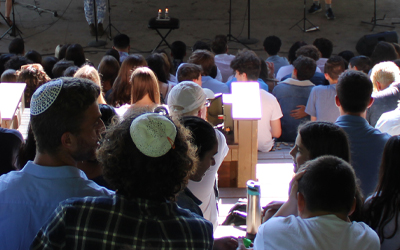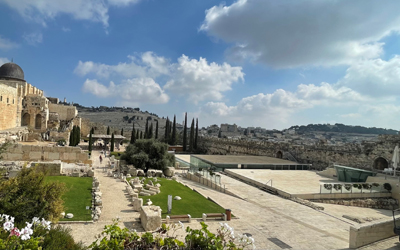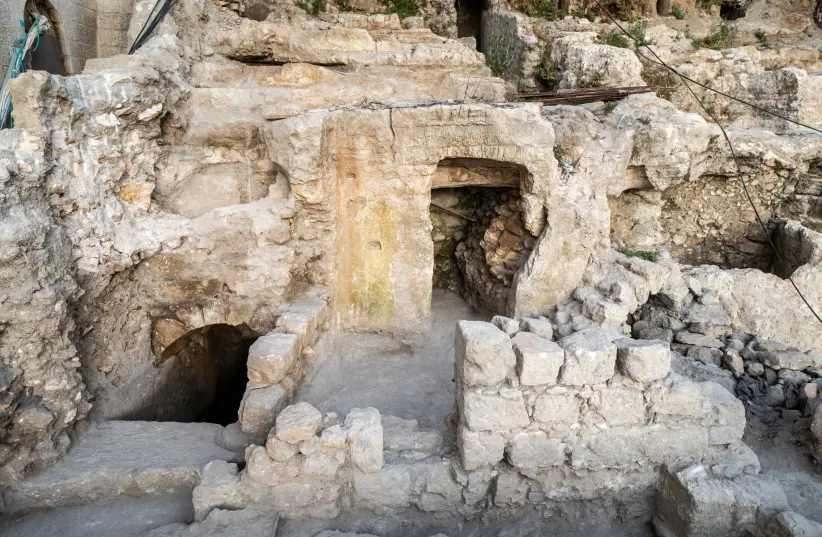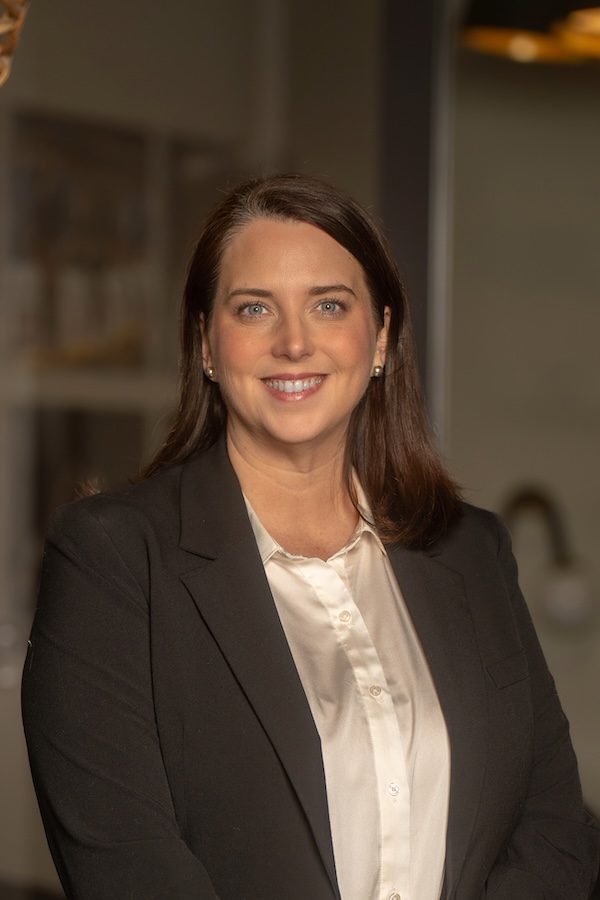The ritual bath is located on top of a cliff in the “Upper City,” the area of Herod’s City which housed Jerusalem’s elites.
A salvage excavation near the Temple Mount has unearthed a unique mikveh ritual bath dating to the Second Temple period.
The mikveh is located on top of a cliff in the “Upper City,” a phrase coined by historian Josephus Flavius to describe the area of Herod’s City that housed Jerusalem’s elites in what is now the Jewish Quarter.
It was found within a private villa, built into the bedrock and featuring a vaulted ceiling with fine masonry typical of the Herodian period.
A plastered water cistern, uncovered near the same villa, had been in use until the destruction of the Second Temple by Rome in 70 CE. It held the remains of nearly 40 cooking pots, some still intact.
These excavations began in February 2021 to provide disabled access between Jerusalem’s Old City and the Western Wall.
The operations were overseen by Hebrew University’s Michal Haber and Dr. Oren Gutfeld, funded in part by Israel’s Jerusalem Affairs Ministry and the William Davidson Foundation, and spearheaded by the Company for the Reconstruction and Development of the Jewish Quarter of the Old City of Jerusalem.
“The excavation revealed remains dating from the Second Temple, Roman-Byzantine, and Ottoman periods,” said Gutfeld while surveying the unique finds. “The number of water channels, cisterns and pools discovered in the area reflects the central role played by Jerusalem’s water supply throughout the ages.”
The excavations also unearthed additional artifacts that span those periods, including a network of plastered pools and channels.
Among the finds were a section of the Ottoman-period phase of the Lower Aqueduct that transported water from Solomon’s Pools near Bethlehem all the way to the Temple Mount in Jerusalem during the Second Temple period.
The Legion was here
Also found was an industrial pool built by soldiers of Rome’s Tenth Legion who were stationed in Jerusalem after the establishment of the Roman colony of Aelia Capitolina in 130 CE. The pool lies on top of the remains of an earlier Roman oven, also installed by soldiers of the legion.
In the bottom layer of tile bricks was one stamped with the letters “LXF,” alluding to “Legio X Fretensis,” the full name of the Tenth Legion.
“These rare finds, made during the Western Wall Elevator Project excavations, are truly exciting,” said Ze’ev Elkin, Construction and Housing Minister and Jerusalem Affairs minister, when inaugurating the project. “They provide proof of a continuous Jewish presence in Jerusalem for millennia. Under my leadership, Israel’s Jerusalem Affairs and Heritage Ministry will continue to preserve and develop Jerusalem’s rich Jewish past and transform the capital into a modern, innovative city.”
Together with Dr. Amit Reem, chief archaeologist of the Israel Antiquities Authority’s Jerusalem District, the ritual bath will be preserved and incorporated into the new Western Wall Elevator complex.
The Mikveh Complex and the Remains of Herodian Construction
(credit: Hebew University of Jerusalem)
Source: https://www.jpost.com/archaeology/article-712603







